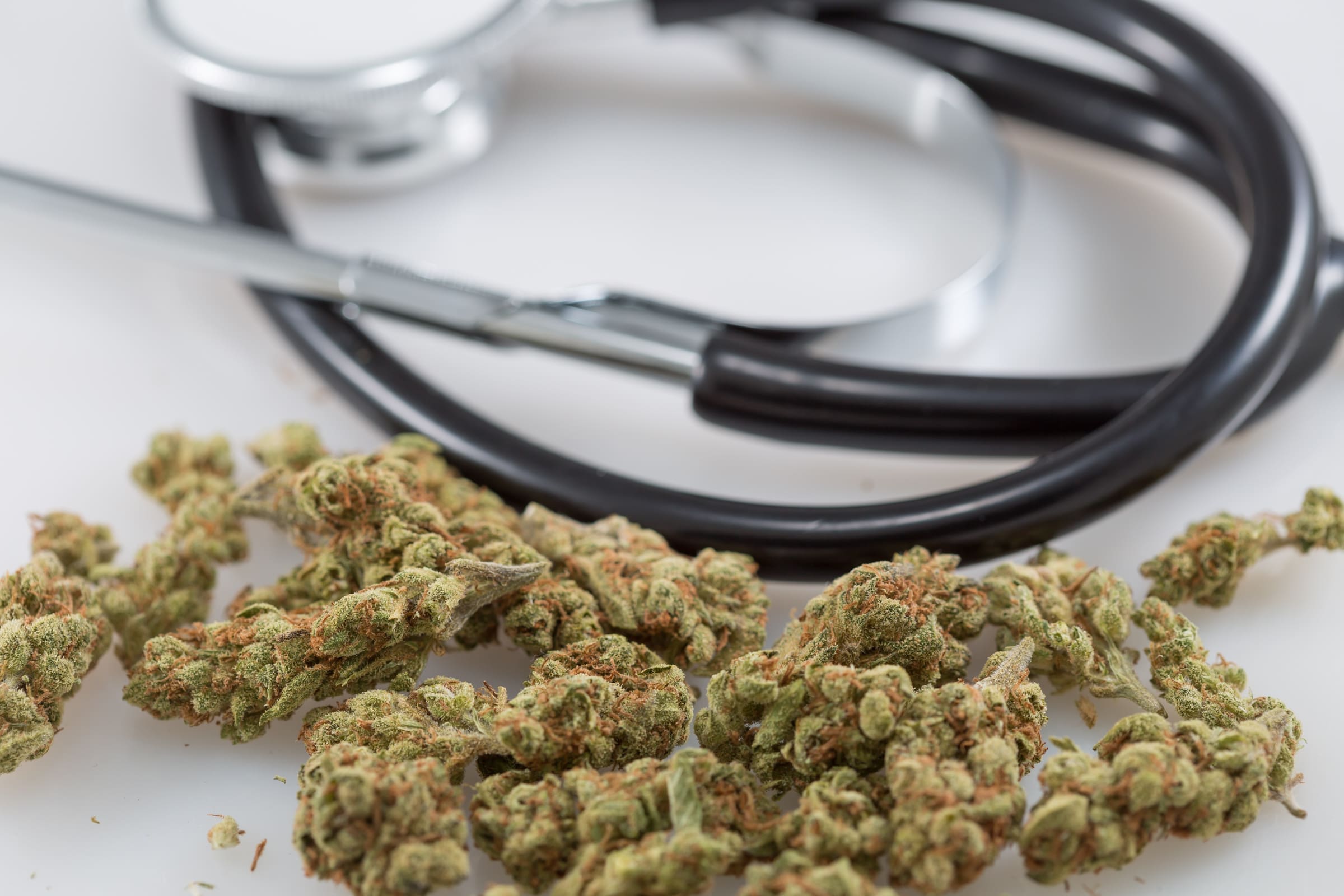Politics
Kansas Lawmakers Approve Changes To Medical Marijuana Bill In Committee

Kansas lawmakers on Thursday began making decisions on proposed amendments to a bill to legalize medical marijuana, moving the proposal closer to a committee vote that could come next week.
Members of the House Federal and State Affairs Committee have been meeting daily this week to go over more than a dozen proposed revisions. Chairman John Barker (R) said during Monday’s initial hearing that the plan was to have legislators take most of the week to review the amendments and then hold a vote on Thursday.
But the large number of amendments has slowed the pace of progress, and now the chairman says he will be asking the House speaker for permission to hold another day or two of meetings to consider the cannabis legislation next week. If the panel can’t finish its work by then, Barker said members may return to the bill later during a potential veto session or will perhaps have to start over again on a new proposal next year.
The bill, which was introduced last month in the committee, would establish a medical marijuana program for qualified patients. Members of the panel have already heard testimony from supporters and opponents.
As drafted, the bill lists 21 conditions that would qualify patients for the program, including chronic pain, HIV and post-traumatic stress disorder. Smoking and vaping products would be prohibited, however. It would also not provide for home growing.
By the end of Thursday’s meeting, members had only gotten through one amendment, which they approved, and began considering a second one.
The adopted measure, from Rep. Blake Carpenter (R), would make a number of revisions to the bill:
-Make changes to provisions concerning the establishment of a medical marijuana advisory board; specify that if regulators have not acted on a petition to add a new qualifying condition within a certain period of time it would be automatically denied; add language to require that other states have equal or stricter standards in order for their patients to qualify under reciprocity provisions; revise advertising restrictions and licensing requirements for people with prior marijuana-related convictions; and set fines for businesses that knowingly disclose confidential patient information.
One representative said the provision on qualifying condition petitions effectively gives officials a pocket veto by not acting on a proposal. He moved to change that to automatic approval if there is no action on a petition, but that was rejected by the committee.
—
Marijuana Moment is already tracking more than 900 cannabis, psychedelics and drug policy bills in state legislatures and Congress this year. Patreon supporters pledging at least $25/month get access to our interactive maps, charts and hearing calendar so they don’t miss any developments.
![]()
Learn more about our marijuana bill tracker and become a supporter on Patreon to get access.
—
The second amendment that the panel began taking up, also filed by Carter, proposes a number of additional changes:
-Change offenses for violations of the cannabis law from a misdemeanor to a felony; add a requirement that patients have electronically scannable ID cards; reduce the amount of time patients would need to have a relationship with their physician to get a recommendation; codify a normal physician-patient relationship and require a physical examination and review of existing medical records; create a per-plant fee structure for cultivators; allow counties to opt out of permitting dispensaries; cap the number of business licenses; rename the state alcohol regulator to the Division of Alcohol and Marijuana Control; and allow out-of-state patients to possess cannabis while traveling in Kansas.
Members did not have a chance to vote on the proposal before the end of the meeting, however.
There are still a number of other submitted amendments the committee will have to take up next week before it can potentially vote to advance the bill to the next step of the legislative process. Among the floated changes are measures dealing with workplace issues, child-resistant packaging, potency caps, allowing smoking and vaping, social equity and various other licensing issues.
“I think we’ve made fairly good progress today,” Barker said. “We may have another period next week to hopefully either finish this up, or not.”
Gov. Laura Kelly (D) has pushed a separate proposal that would legalize medical cannabis and use the resulting revenue to support Medicaid expansion, with Woodard filing the measure on the governor’s behalf.
Kelly has she said she wants voters to put pressure on their representatives to get the reform passed.
While both pieces of legislation would make it so Kansas would join the vast majority of states that have legal medical marijuana markets, advocates view them as restrictive, particularly as it concerns the limited methods of consumption that would be permitted.
A separate medical cannabis legalization bill was introduced by the Senate Commerce Commerce last month, though it has not seen action.
The measure’s language largely reflects legislation that was introduced in the House last year. Patients would be eligible for medical cannabis with a doctor’s recommendation if they have a condition that significantly inhibits their ability to conduct daily activities or if the lack of treatment would pose serious physical or mental harm.
Registered patients would be allowed to grow and possess at least four ounces of marijuana. The bill would also establish a Kansas Medical Cannabis Agency to oversee the program.
30 Members Of Congress Blast Biden’s Marijuana-Related White House Firings




